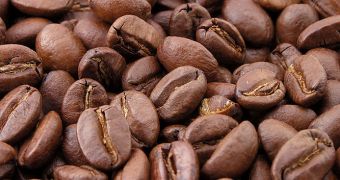Teenagers are one of the most at-risk populations for experiencing sleep deprivation. They sleep less, on average, than adults, even during periods where sleep is essential for a proper development of the mind and body. A new study now shows that teens who stay up late sleep even less.
This happens primarily because they consume more caffeine. They take the chemical from a variety sources, including coffee, green tea and other beverages, as well as the yerba maté and guarana plants.
In a new investigation, experts looked at how much teens slept, and determined that those who tended to sleep less than their peers also exhibited a higher level of caffeine consumption. At the same time, this made them sleep even less, exacerbating the effects that lack of sleep has on the brain and body.
Primary care clinic expert Christina Calamaro, PhD, conducted the study after she got complaints from parents she dealt with that their adolescent and teenage kids were staying up too late. In the survey, she talked directly to the children.
The main reasons they gave for this behavior were mostly related to technology. They did not go to sleep at the appropriate hours because they were busy e-mailing each other, texting their friends, watching TV programs, or playing computer games until late at night.
Calamaro's study is the first-ever to investigate the connection between sleep patterns and technology use by factoring in caffeine consumption as well. Details of the new work were published in the latest issue of the esteemed journal Pediatrics.
For the survey, the expert conducted interviews with around 100 children, aged between 12 and 18. She determined that a clear correlation exists between the amount of tasks teens did at night, the amount of sleep they got, and the quantity of caffeine they consumed to stay awake.
About 11 percent of the children in the group consumed more than 400 milligrams of the stuff daily. Nearly 85 percent of subjects drank caffeine daily. “Adolescence is the last frontier before adulthood, a time when we can look at people’s lives and make real dedicated change,” Calamaro explains.
“It is not just about caffeine, it’s about calories. When was the last time you saw a teenager walking into Starbucks and ordering a (no-calorie) espresso? It’s usually a triple shot latte frappe,” she adds.
The investigator explains that she now plans to conduct studies meant to tease out the connection between lack of sleep in teens impacts decision-making and depression risks. Such studies could save millions of dollars in public healthcare cost, PsychCentral reports.

 14 DAY TRIAL //
14 DAY TRIAL //